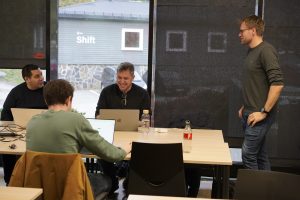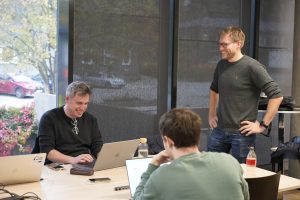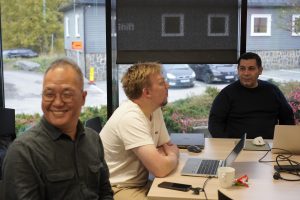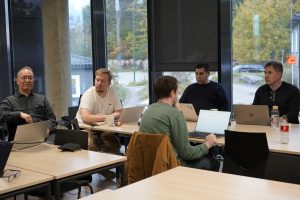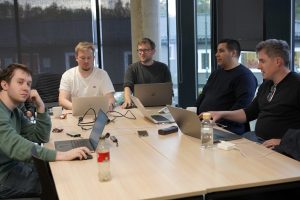Coding for defect detection in glass fibre production
2 mins to read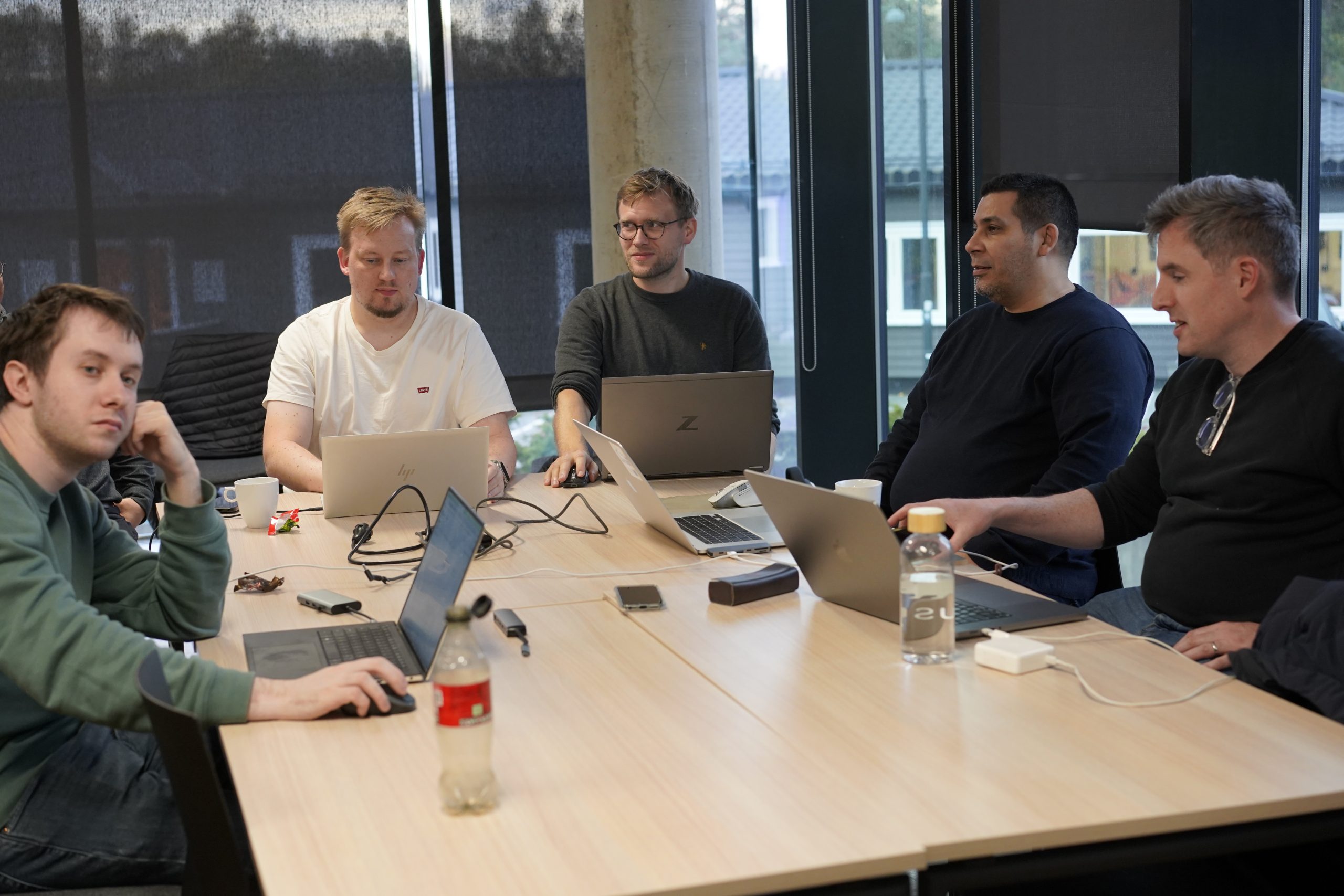
Detecting defects during glass fibre production is a critical task that impacts efficiency, costs and sustainability. During a recent COGNIMAN coding day in Kristiansand, Norway, engineers and technical experts from 3B-Fibreglass, IBM, SINTEF, NORCE and Montimage worked together to advance the sensor solutions using artificial intelligence (AI).
Tackling defects in glass fibre production
Fibre breaks may seem to be small defects, but in glass fibre manufacturing, they cause delays, waste and higher costs. The team focused on developing an AI system to detect defects early, reducing the risk of production interruptions. The challenge is to create an accurate detection system that minimises false alarms, which can lead to unnecessary disruptions.
Using AI and data to improve detection
The team used data provided by 3B-Fibreglass to train AI algorithms to identify defects with high precision. Through this, the system becomes better at handling variability in production conditions, such as temperature changes and fibre thickness. These variations can significantly affect defect formation.
By refining the algorithms, the team aims to reduce waste and improve the quality of glass fibre products. Early detection ensures that defects don’t disrupt the production line or compromise product standards.
Streamlining collaboration with Microsoft Azure
The team used Microsoft Azure DevOps, a cloud-based platform for project management and collaboration. This tool helped track tasks, share updates and manage progress efficiently.
Microsoft Azure is like a toolkit for teams working on complex projects. It includes services for:
- Coding and testing: Writing and testing software
- Data analysis: Understanding large datasets, like those used in defect detection
- Project management: Keeping tasks organised and on schedule
Practical goals for glass fibre production
The project focuses on improving sensors that can predict a break before it happens. Better detection can lead to:
- More effective sensor systems.
- Reduced cleaning and maintenance needs.
- Shorter repair times and fewer production interruptions.
These improvements would increase efficiency, reduce waste and lower production costs.
What’s next?
The session in Kristiansand was a step toward creating a reliable defect detection system for glass fibre production. The next phases will focus on further refining the AI algorithms and testing them.


